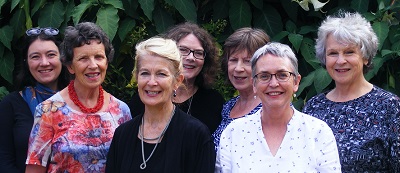
Divisions
- Home
- Tasmanian Government Policy and Programs
- Women's organisations to join
- Information and resources
- Tasmanian Honour Roll of Women
Contact Details
By phone
Find the number of a specific division or office to contact them directly or call Service Tasmania on 1300 135 513.
Our staff
Use the Tasmanian Government Directory to find staff contact details
Female Convicts Research Centre


Awarded for community service, education and training, justice and tourism
Entered on roll: 2017
“Telling the stories of long forgotten women”
The Female Convicts Research Centre (FCRC) has rescued the quiet, the survivors, the childless, the well-behaved and the ordinary from historical oblivion.
Since 2004, a small group of volunteers in Tasmania has coordinated a much larger cohort of local, interstate and overseas volunteers to systematically trace and study Tasmania’s female convict pioneers. This not-for-profit organisation was the first community research group in Australia to see that a whole-of-population approach would yield new knowledge.
The volunteer genealogists have recorded the details of over 12,500 women into an online database, hosted events to celebrate and explore the lives of convict women, researched convict institutions and researched, written and published stories and books through Convict Women’s Press.
The Female Convicts in Van Diemen’s Land database contains the records of every female convict transported to Tasmania, covering their lives before, during and after transportation. Volunteers have transcribed information from original records from Australia, Britain and Ireland, including official archives, family records and newspapers. A worldwide membership of over 5,000 volunteer transcribers, academics, researchers, authors and family historians indicates the growing interest in these forgotten women, many of whom were the founding mothers of the Tasmanian community.
By building links with family and local historians in Britain and Ireland, the FCRC has enriched local convict archives with historical data outside the penal and judicial record systems.
The FCRC’s goal is to turn state records into personal biographies, giving each woman a record that brings together as much information as possible about her life before transportation, during her sentence and after she was free.
The online database is a living archive that is readily accessible and a significant resource for family historians and academic researchers.
Volunteers work from home but connect with people all around the world through a common project where they learn to read, understand and transcribe colonial documents and genealogical material, and develop skills in historical research, computing, database coding and entry.
 Tasmanian Honour Roll of Women
Tasmanian Honour Roll of Women